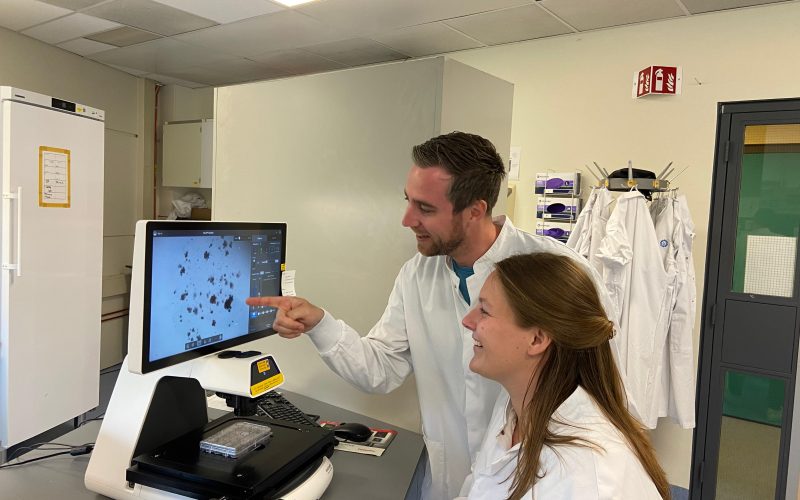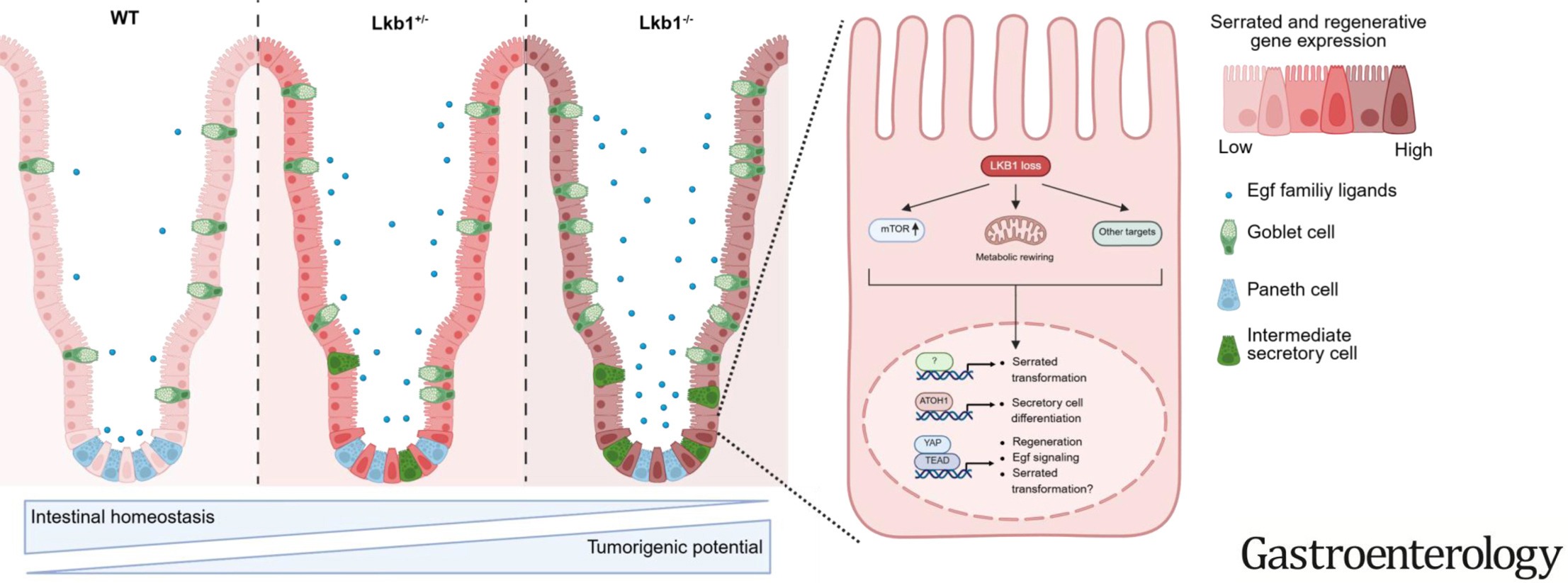Researchers at UMC Utrecht have discovered a possible reason why people with the rare Peutz-Jeghers syndrome are more likely to develop cancer. This new knowledge helps us to better understand what happens in the bodies of these patients. In the future, this could lead to better treatments.
Peutz-Jeghers syndrome is a rare disease that affects one in 200,000 people worldwide each year. It is a hereditary condition that leads to polyp formation in the intestine and an increased risk of various types of cancer.
Researchers at UMC Utrecht have discovered a possible mechanism by which the mutation responsible for the syndrome leads to an increased risk of cancer formation. To do this, they used organoids, miniature organs that mimic the intestinal epithelium, the ‘skin’ of the intestine.
“Previous animal models for Peutz-Jeghers syndrome do not allow us to study the risk of tumor formation,” says Jelte van der Vaart, researcher at the Center for Molecular Medicine at UMC Utrecht. In those models, they induced the genetic defect that causes the syndrome in humans.”But the mice developed so many polyps that they never progressed to a further stage of the disease.”
Van der Vaart and his colleagues in Prof. Madelon Maurice’s research group therefore used a different method. Using organoids, a type of mini-intestine, they were able to mimic what happens in the epithelial cells of the intestinal tissue, which are more susceptible to the development of cancer in Peutz-Jeghers syndrome. The researchers observed that the same cellular programs were activated in these cells as in wound repair after cell damage. “The intestinal epithelium goes into some sort of chronic stress state,” says co-researcher Susanna Plugge. “It reacts as if there is damage to the cells that is not being repaired. We believe that this may ultimately increase the risk of uncontrolled growth and, with it, the risk of cancer development.”
The researchers see a link between the mutation and the type of tumors in the intestinal epithelial cells of Peutz-Jeghers patients. “These people have to come back almost every year for polyp checks,” says Van der Vaart. “Our findings explain why they have an increased risk of a specific type of epithelial tumors. This will enable doctors to better recognize and understand the disease, which could lead to faster, better treatment.”
But for now, next step for the researchers is to repeat their experiments with patient material. “We conducted our study using healthy intestinal cells,” says Van der Vaart. “Together with Amsterdam UMC, we are currently developing organoids from intestinal tissue from Peutz-Jeghers patients. We hope that this will give us more insight into the differences between people with this syndrome that doctors see in the clinic.”
Want to know more? Read the publication in Gastroenterology.

